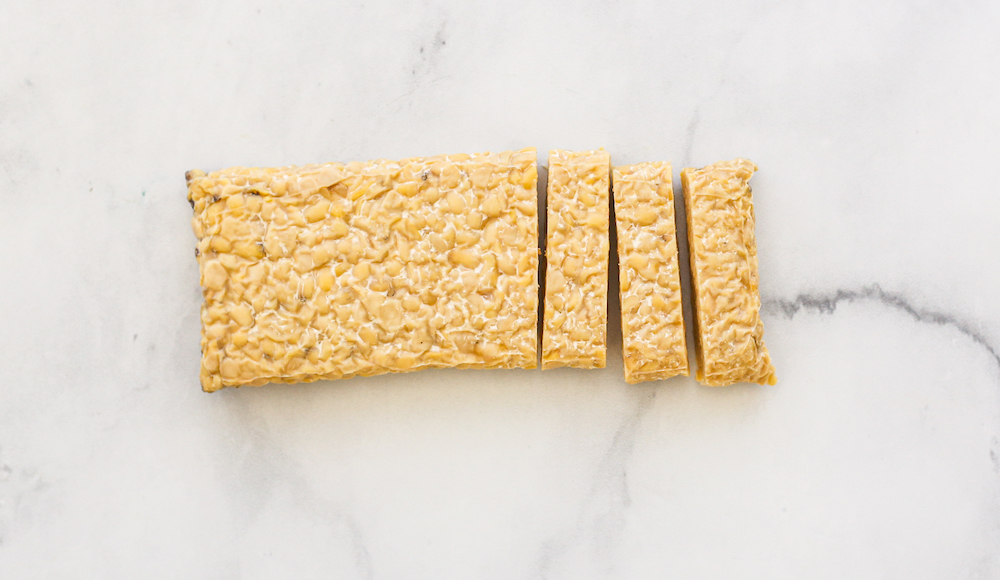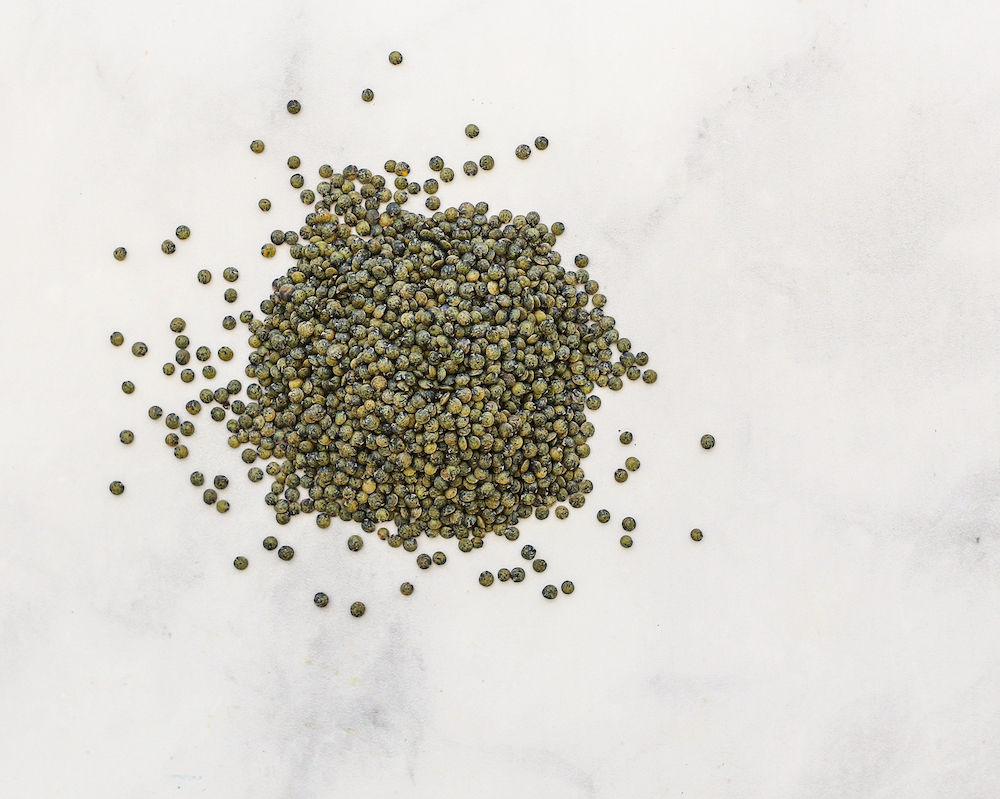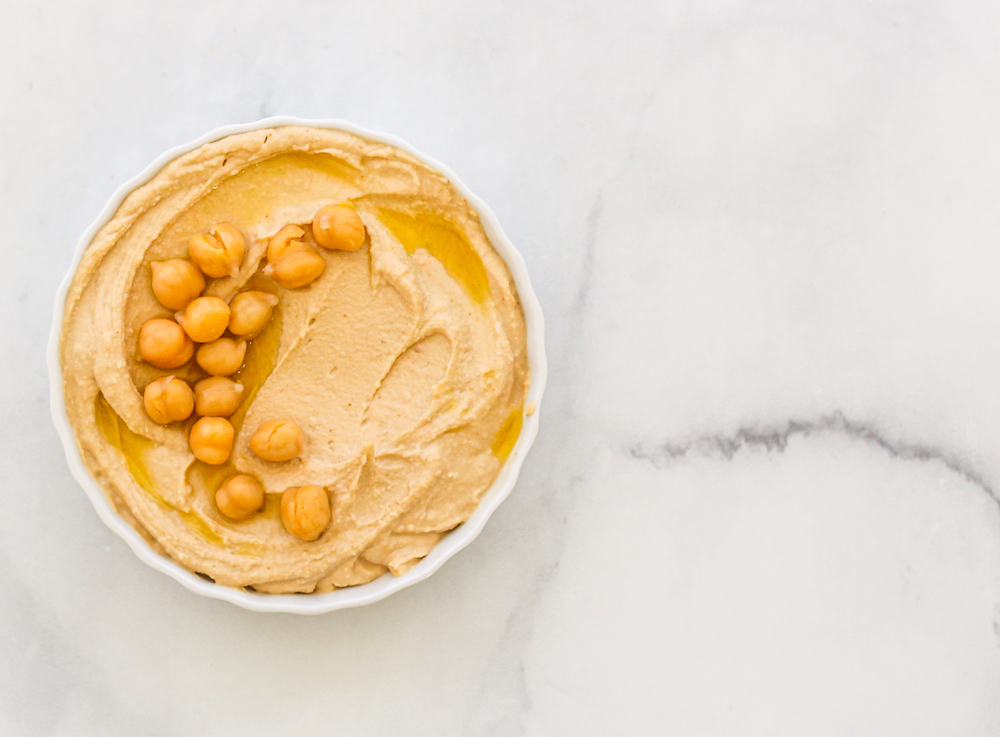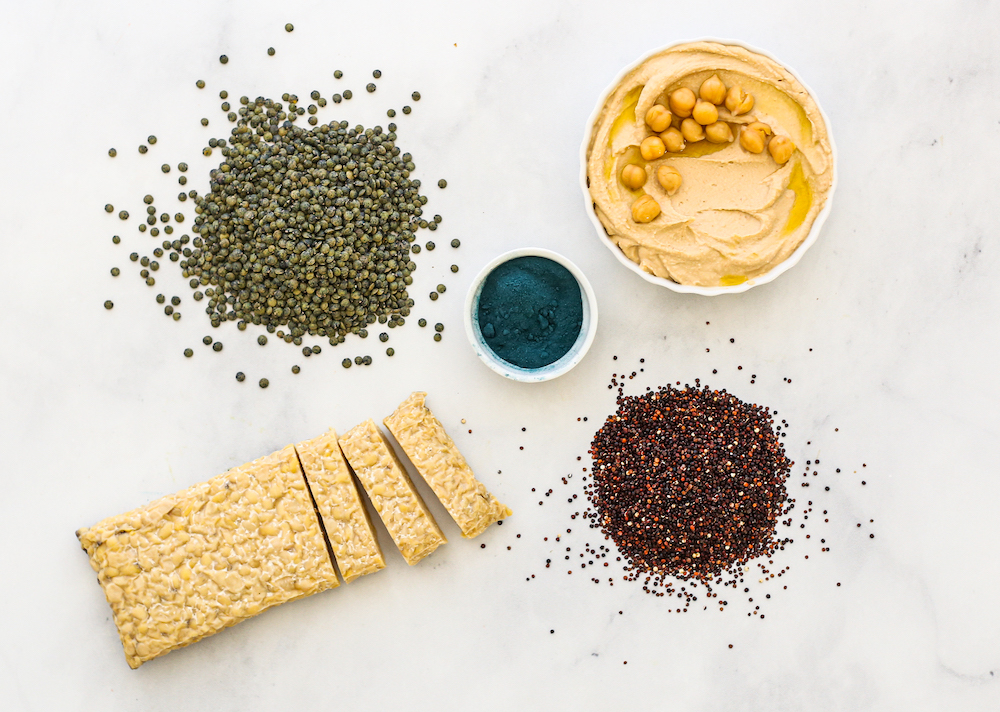Hummus where the heart is—and our hearts in plant-based proteins! We’ve been seeing meat substitutes all over the market these days, from plant-based burgers to jackfruit being used instead of pulled pork, and so many more—and we love it!
We know that often, people’s concerns with going plant-based, is that they won’t get enough protein without meat. But think again! We talked to Health Coach, Molly Alliman from Balance by Molly for some tips and tricks to integrating more plant-based proteins into your diet. So if you’re looking to add more non-meat protein that’s also full of nutrients—here are Molly’s 5 favorites plant-based proteins with ideas on how to integrate them, and mix things up for your Meatless Mondays, or if you are vegan or vegetarian.
Plant-based proteins are great way to add variety to your meals, as well as your gut flora. The bacteria in our guts are made up of what we eat, therefore more diversity in our food means more diversity in your good bacteria, which equals a healthy gut.

1. Fermented Soy such as Tempeh and Miso have been cultured with beneficial bacteria which improves its digestibility and absorption in the body, as this process partially breaks down soy’s sugar and protein molecules. I love using Miso to make salad dressings and Tempeh in a teriyaki dish with broccoli over white rice.

2. Lentils, in my opinion, are the coolest of the legume family. They are high in protein, with one cup of cooked lentils packing in 18 grams. They are high in fiber, iron, and polyphenols (which are active compounds with long-lasting health benefits for your heart!). I like to throw cooked and cooled lentils into salads, or serve them with brown rice in a Mediterranean bowl with sautéed onions and red bell peppers.
3. Quinoa is a grain and also a complete protein with all nine essential amino acids. It is high in fiber, B vitamins, iron, potassium, magnesium and vitamin E. I love making grain bowls with quinoa, sweet potato, black beans, and guacamole.

4. Hummus is made with a combination of chickpeas, tahini, lemon, and olive oil. It contains iron, folate and B vitamins with 8 grams of protein per serving. Hummus makes a fantastic snack on sprouted wheat bread with avocado.
5. Spirulina is my wildcard, you would never think that this superfood powder contains protein but it does, and a lot! A tablespoon of spirulina powder contains 7 grams of protein. I like to start small with just a teaspoon in my morning smoothie adding banana and mango with spinach for a nutrient-rich breakfast.
For more healthy tips from Molly follow us on Instagram, and join us monthly as we go live with her to answer any nutrition questions!





